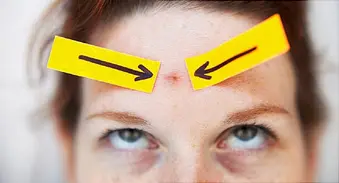Myths and Facts About Teen Acne


Question 1/13
Eating fast food can cause acne.
- True
- False
Question 2/13
What can affect your acne?
- Hormones
- Wearing makeup
- Not washing your face enough
- All of the above
Question 3/13
Stress can make an acne outbreak worse.
- True
- False
Question 4/13
Shampooing oily hair every day can help prevent breakouts.
- True
- False
Question 5/13
Acne may be worse in teen boys than in girls because:
- Boys sweat more than girls
- Boys have oilier skin
- Boys have thicker skin
- All of the above
Question 6/13
Acne can run in your family.
- True
- False
Question 7/13
What percentage of people between 1 and 30 will get acne?
- 20%
- 40%
- 60%
- 80%
Question 8/13
If you get acne, the best way to put on cleanser is with:
- Your fingers
- A washcloth
- A sponge
- Exfoliating pads
Question 9/13
It's OK to pop whiteheads as long as you do it gently.
- True
- False
Question 10/13
Which over-the-counter acne treatment works?
- Benzoyl peroxide
- Resorcinol
- Salicylic acid
- All of the above
Question 11/13
Be careful using benzoyl peroxide if you:
- Have oily skin
- Are a redhead
- Are a person of color
Question 12/13
People with acne should avoid "noncomedogenic" skin products.
- True
- False
Question 13/13
You should see a doctor or dermatologist for acne if:
- You have acne scars
- It embarrasses you
- Store treatments don’t work
- Any of the above
